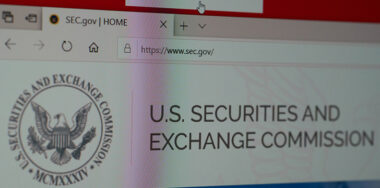A court in Texas has fined two individuals $360,000 over an elaborate SegWitCoin (BTC) fraud, in the latest scam to hit the embattled cryptocurrency.
Morgan Hunt and Kim Hecroft were ordered by the court to pay the money, comprised of both civil penalties and restitution, over an alleged fraud that saw them fraudulently misrepresenting the U.S. Commodity Futures Trading Commission (CFTC) in a bid to part investors from their BTC.
The defendants were charged with using social media, specifically Facebook, and email to obtain BTC from investors on the false promise they would invest the money and pay returns accordingly – in diamond trading and binary options, respectively.
The two were found to have fraudulently misrepresented their industry experience to investors, and misleading investors by requiring them to pay a ‘CFTC tax’ on withdrawals, which did not in fact exist.
Both Hunt and Hencroft were found to have misappropriated client funds, as well as passing off as the CFTC through forged documents and outright impersonation to unsuspecting investors.
James McDonald, CFTC Director of Enforcement, said retail customers should still be wary of BTC scams, underlining that the commission does not collected any taxes or fees from investors.
“As the CFTC has repeatedly warned, retail customers should exercise caution before buying or trading cryptocurrencies on unfamiliar Internet websites or social media. The CFTC reiterates that it does not collect taxes or fees, and will continue to educate the investing public and aggressively pursue misconduct in this arena,” McDonald said in a statement.
The scam is only the latest fraud around BTC, which continues to be a target for fraudsters and criminals. Each of the defendants were required to pay $180,000 penalty in addition to restitution, as well as imposing permanent trading bans on both individuals.
However, the court said investors may still be unable to recoup the full amount lost to the scam, as the “wrongdoers may not have sufficient funds or assets.”
It remains to be seen whether the victims can recoup their losses in this case. Nevertheless, it serves as a reminder to be wary of the growing number of BTC scams and frauds.
New to blockchain? Check out CoinGeek’s Blockchain for Beginners section, the ultimate resource guide to learn more about blockchain technology.







